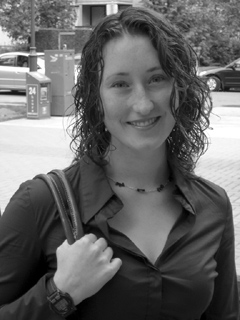Having just had to walk home from downtown – across the Lions Gate Bridge – after missing the last bus, I am not in the mood to write a great deal. As such, the great bulk of today’s happenings will go undocumented.
Perhaps the most distinct thing to arise from my conversations with former profs at UBC is the need to cultivate an additional pair of references at Oxford, aside from Andrew Hurrell. According to advice from Peter Dauvergne, using references from my first degree would be viewed with suspicion in an application to doctoral programs. I don’t really think anyone aside from Dr. Hurrell is familiar enough with my first year of work to serve as a reference, so I will need to make sure that whoever teaches my optional subjects next year gets to know me and my work well enough to do so. Apparently, name recognition relating to a letter from someone like Henry Shue could be a big advantage for US schools – perhaps enough to make me reconsider the choice to take international law and the developing world as options, while he is teaching his reading-intensive version of normative theory.
Both Kathy Baylis and Peter Dauvergne strongly endorsed MIT, Columbia, and Berkeley for a doctorate, on the basis of my interests. As such, and on the basis of much prior contemplation, that trio constitutes my set of top choices at the moment.
The need to have {a solid proposal} and {excellent references} and {very good grades} and {a solid score on the GRE} and {a plausible supervisor at the school to which you apply} is collectively a daunting set of requirements. Indeed, I left my meeting with Dr. Dauvergne feeling quite menaced by the whole process.


Whoever teaches you this coming year should be familiar enough with your work to write you a reference, though in my experience the level of supervision on taught courses does vary immensely. It may be worth either asking for a reference for something whilst on the course or the term after, or alerting the said tutor to your intention to ask them for references later, to ensure you aren’t forgotten if you don’t go straight for the PhD though.
From my experience, I don’t think receiving good references will be a problem. I was surprised that, even months after I arrived here and had only handed in a couple short essays, both my supervisors were willing to recommend me to funding bodies. While yes, the quality of your work does matter a fair deal, the other half of a recommendation simply involves your ability to show up and meet yur deadlines on a regular basis. It’s partly that kind of staying power that doctoral programmes are looking for. So anyway, I think you’ll have no problems.